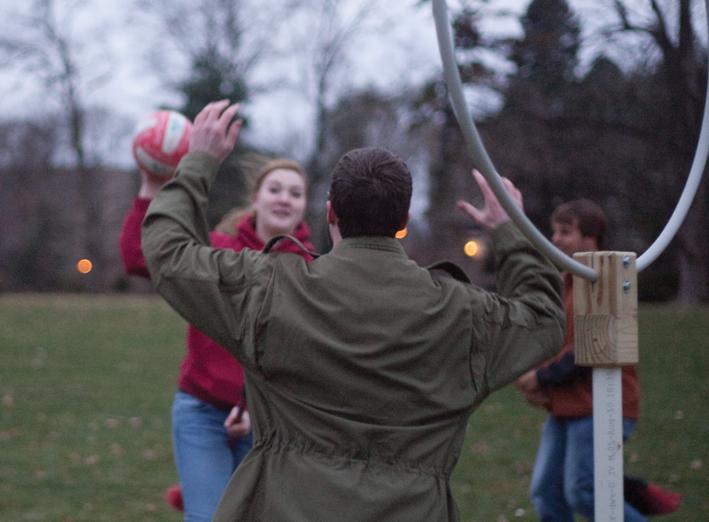Quidditch arrives at Iowa State
November 16, 2010
When Haley Dillon, junior in materials engineering, and her younger brother Mark, freshman in engineering, started reading the “Harry Potter” series, they had no idea that they would one day bring a part of the wizarding world to the muggles at Iowa State.
The two began reading the series when it first came out and followed Potter’s endeavors through his years at Hogwarts. As each new book was released the two would be among the die-hard fans waiting to get their hands on the titles before anyone else.
The two are the founders of the ISU Quidditch Club, which just became an official club at Iowa State in November and was recently recognized by the International Quidditch Association. Membership continues to grow as the word of the club spreads throughout campus by word of mouth and Facebook.
One day in October, Mark came home from a test to find a slightly giddy Haley, enthusiastic to tell her brother about the news.
The beloved game in the “Harry Potter” series, Quidditch, had actually become a real sport.
Haley had heard about the Quidditch Club from a friend attending the University of Iowa who was talking about participating in an inter-house Quidditch tournament there.
“The night Haley came up with the idea was pretty fun,” Mark said. “She was very excited and couldn’t even sleep, so she just stayed up and talked with me about it and we worked out the kinks. I wasn’t sure if we would actually go through with it that night. But the idea wouldn’t go away.”
Within only a week, Haley had already gathered enough members and officers, written the club’s constitution, and was already on her way to find an adviser.
“This took a little while and a couple of refusals before finally I found a professor willing to support such a nerdy club. This process took about a month and the club was officially recognized in early November,” Haley said.
Haley became the president and Mark the vice president of the official ISU Quidditch Club.
The game played on college campuses internationally is often referred to as “ground Quidditch” or “Muggle Quidditch,” according to the International Quidditch Association Rulebook
Muggle Quidditch began as an intramural league in 2005 at Middlebury College in Vermont. Since then, the sport has grown into an international phenomenon. The International Quidditch Association has helped more than 400 colleges and 300 high schools start teams.
Muggle Quidditch is very similar to the game played in “Harry Potter,” with a few exceptions, according to the International Quidditch Association official website: The players hold the same positions and have the same duties as in the books, with the addition of a snitch runner.
The snitch runner is a neutral player able to run anywhere on campus. They are able to hide from the seekers, taunt them or do whatever it takes to keep away. The snitch itself hangs in a sock, tied to the snitch runner’s waist. The job of the seekers is to hunt for the snitch on campus, run after him and attempt to pull the sock with the snitch in it from the snitch runner’s waist.
“It is supposed to be made more difficult because there are no fouling rules that apply to the snitch runner in his attempts to hamper the seeker’s efforts,” Haley said.
Just like in the books, the seeker catching the snitch signals the end of the game, except in Muggle Quidditch, instead of the snitch being worth 150 points, it is only worth 30. This is to give both teams a fighting chance and to place more importance on other members of the team.
“The biggest difference between the two is the fact that we cannot, in fact, fly on broomsticks,” Haley said. “So we run around with brooms between our legs instead. One hand must remain on the broom at all times. This adds a level of difficulty and silliness that makes the game awesome.”
The ISU Quidditch Club will be playing its first scrimmage Nov. 28. In the spring, the club is hoping to have regular weekend matches and hopes to have enough attention from students then to be able to host a weekend tournament where non-member teams can sign up and play for prizes. Next year the club may be ready to play against other college teams.
“We hope that with regular scrimmages and tournaments we will form a Quidditch team that will be a force to be reckoned with against other colleges,” Haley said.







